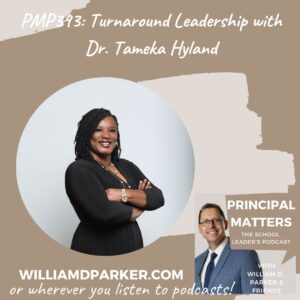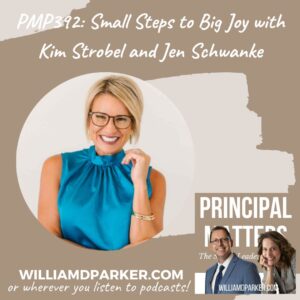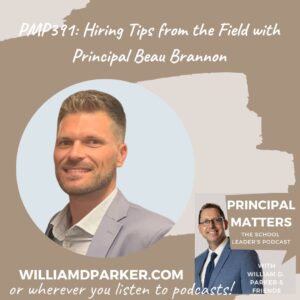Podcast: Play in new window | Download
When this pandemic began, many of us were asking what lessons we may learn from something none of us ever experienced before.
Dr. Tim Elmore began asking similar questions to survivors of the Great Depression and other crises experiences. The result? He has just published his latest book, The Pandemic Population: Eight Strategies to Help Generation Z After Coronavirus.
Dr. Tim Elmore
Dr. Tim Elmore, CEO and Founder of Growing Leaders, is a best-selling author and international speaker. A world-renowned expert on Millennial and Gen-Z trends, Dr. Elmore uses his knowledge to equip educators, coaches, leaders, parents, and other adults to impart practical life and leadership skills to young adults that will help them navigate through life.
How Can We Help Students During Times Like These?
Listen to this week’s podcast for the full interview. But here are some takeaways from this week’s podcast episode with Dr. Tim Elmore:
WDP: Hi, Tim. Fill in the gap on that intro, and tell listeners something they may be surprised to know about you.
Dr. Elmore: I love popcorn. If you’re ever in Atlanta, stop by the office to enjoy my favorite snack with me!
WDP: Let’s talk about your new book: The Pandemic Population: Eight Strategies to Help Generation Z After Coronavirus. You have published other books analyzing generational trends. What prompted you to begin sharing lessons educators should keep in mind during a pandemic?
Dr. Elmore: The Pandemic Population is a timely treatment on how to lead youth in a crisis. Students today are being influenced by a 24/7 news cycle covering a pandemic, protests, and panic attacks that will either make them wither or will make them stronger than ever. Generation Z is graduating into a VUCA world: Volatile, Uncertain, Complex, and Ambiguous. They’re already the most anxious generation in modern history and now they live in a most anxious time. This book provides best practices for leading in a crisis as well as creative ideas to sustain morale and collaboration among students. It’s designed for educators, parents, and coaches who want lead kids during this specific time in history.
WDP: Could you unpack a few strategies that people have used in previous pandemics and crises?
Dr. Elmore: Yes, we must help people see the silver lining in the dark clouds. As I’ve talked to survivors of past difficulties, here are some takeaways: First, make a pro and con list. Ask what have been the good and bad outcomes that have happened in the past and are happening right now? Issac Newton came up with calculus during his own time of pandemic. We might not have calculus or the law gravity without his contributions. The same lessons apply now. Millions of children may experience PTSD because of this pandemic. But crises are also accompanied by PTG (Post Traumatic Growth). Students need a caring adult to walk them through the hard times, process the situation, and find lessons to apply to their lives. The trauma does not bring on growth; it’s what you DO with the situation that can provide opportunities for growth. This means educators must provide safe spaces and facilitate truth walks so they can apply these lessons.
WDP: How are you balancing the cons and lists in your own life and work?
Dr. Elmore: Just like so many other organizations, Growing Leaders has had to dig deep on innovative ways to flex during the pandemic. But we’ve also been exploring ways to analyze our memories. Let me explain: How can we as educators not only have an accurate memory of what is happening but a positive perspective? This involves saying, “Yes, this is true. But what can we do about it?” Instead of ‘canceling 2020,’ what if it was the wake-up-call we all needed to take our schools and careers to new levels?
WDP: One of the pieces of advice you gave early on was to take advantage of this moment in history. For me, that meant recording new music and publishing another book, Pause. Breathe. Flourish. For educators, I’ve also seen them embracing new learning, technologies and strategies they’ve never used before. The need for fundamentals in helping others has also not changed. We still need the ‘timely’ and the ‘timeless’. Explain why you so often use that term.
Dr. Elmore: We must help our young people find hope during this time of pandemic, protests and anxiety. The CDC released numbers that 1 in 4 young adults has contemplated suicide during the last few months. We must be timely in responding to the current situation we are in. At the same time, there are timeless lessons like discipline, character, and social emotional learning we must still be teaching at all times. Here’s one other strategy to think about: Have your students practice psychological distancing. In other words, coach students to think about what they would do when helping a friend process their anxiety and stress. Then ask them to apply that same strategy to their own process when confronting difficulties.
WDP: Where can listeners find your book and how can they stay connected with you?
Dr. Elmore: You can find The Pandemic Population: Eight Strategies to Help Generation Z After Coronavirus at our website, GrowingLeaders.com, where we have lots of resources for educators who care about influencing the next generation.



